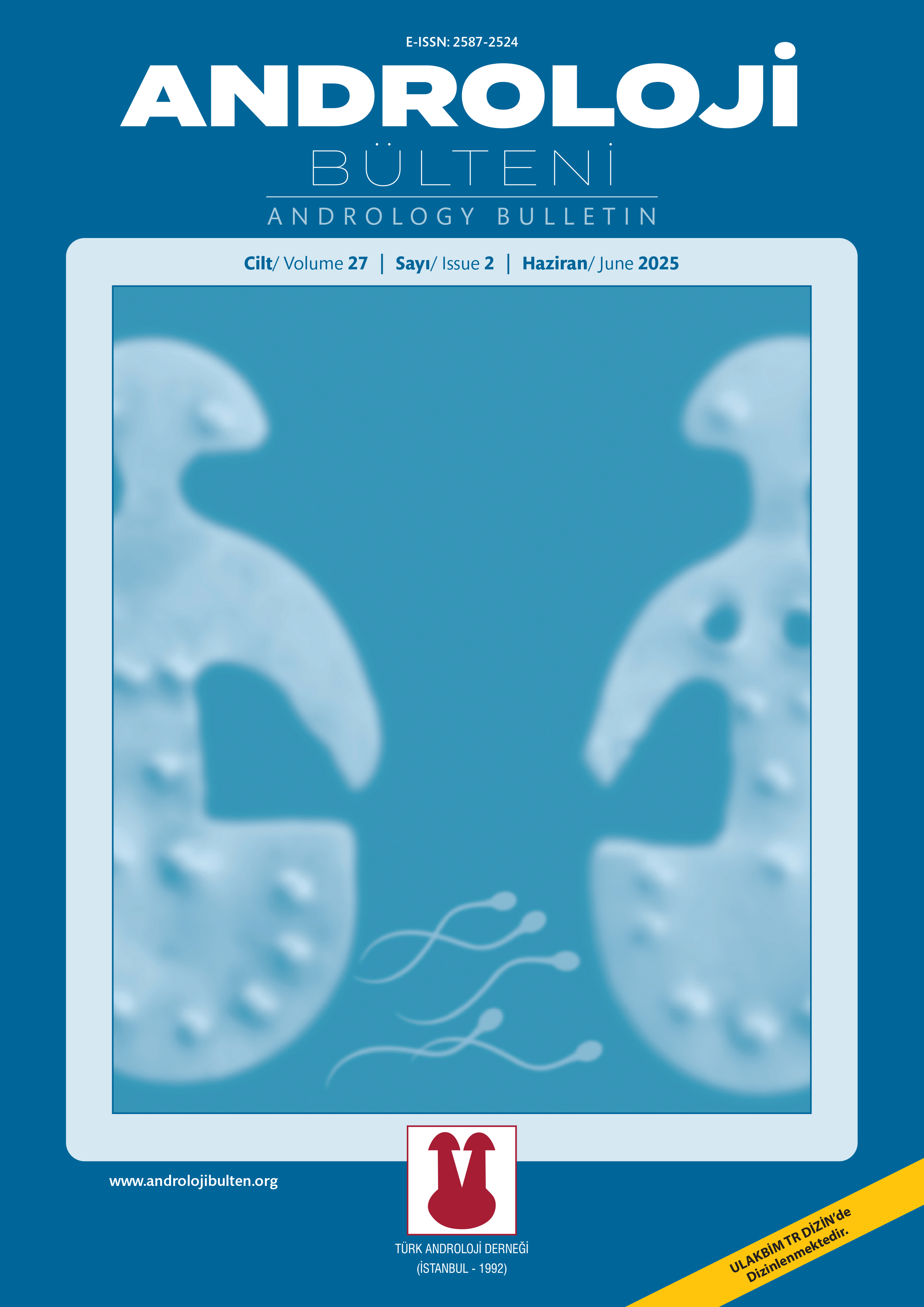
Bu derginin içeriği Creative Commons Atıf-GayriTicari 4.0 Uluslararası Lisansı kapsamında lisanslanmıştır.
Yapay zekâ, erektil disfonksiyon ile ilgili sorulara nasıl yanıtlar veriyor: ChatGPT vs Google AI
Mehmet Yılmaz, Gökhan ÇilSağlık Bilimleri Üniversitesi, Bağcılar Eğitim ve Araştırma Hastanesi, Üroloji Kliniği, İstanbul, TürkiyeAMAÇ: Bu çalışma, Google AI ve ChatGPT’nin erektil disfonksiyon (ED) ile ilgili sorulara ne kadar doğru yanıt verdiğini araştırmayıamaçladı.
GEREÇ ve YÖNTEMLER: Ocak ve Şubat 2024 arasında, iki ürolog tarafından, erektil disfonksiyon (ED) ile ilgili 80 spesifik soru, üroloji kılavuzlarını (EAU kılavuzu 2023) temel alınarak oluşturuldu. Sorular, etiyoloji ve risk faktörleri, patofizyoloji, tanı ve tedavi gibi konuları kapsıyordu. Potansiyel önyargıları kontrol etmek için, tek bir araştırmacı tüm soruları ChatGPT ve Google AI’a sordu. Yapay zekâ modelleri tarafından verilen yanıtlar daha sonra soruları formüle eden doktorlar tarafından değerlendirildi. İstatistiksel analiz için IBM Sosyal Bilimlerde İstatistik Paket Programı (SPSS) sürüm 29.0.2.0 kullanıldı. Küçük örneklem büyüklüğü nedeniyle parametrik olmayan testler kullanıldı (n <30). Sonuçlar sayısal ve grafiksel olarak sunuldu ve her parametre için ortalama değerler hesaplandı. İki grup arasındaki karşılaştırma için Mann-Whitney U testi kullanıldı ve anlamlılık düzeyi p<0,05 olarak belirlendi.
BULGULAR: Etiyoloji ve risk faktörleri ile ilgili sorulara her iki dil modeli de yüksek doğruluk oranıyla cevaplar vermiş olsalar da ChatGPT biraz daha düşük oranda tamamen doğru yanıtlar verdi (sırasıyla 3,8±0,41, 3,65±0,58; p=0,56). Patofizyoloji açısından, her iki model de doğru cevaplar sağladı ve yanıltıcı bilgi bulunmadı (sırasıyla 3,55±0,51, 3,7±0,47; p=0,43). Tanı ve tedavi ile ilgili sorulara, her iki yapay zekâ modeli de benzer oranda doğru cevaplar verdiler (sırasıyla 3,6±0,59, 3,35±0,87; p=0,47) ve (sırasıyla 3,50±0,68, 3,4±0,94; p=0,70). Bununla birlikte tanı ve tedavi ile ilgili sorulara hem Google AI hem de ChatGPT daha fazla yanlış bilgiler de içeren cevaplar vermiştir.
SONUÇ: Google AI ve ChatGPT genellikle erektil disfonksiyon sorularına tatmin edici ve doğru yanıtlar vermiş olmalarına rağmen, performansları sorular arasında değişkenlik göstermektedir.
How artificial intelligence responds to erectile dysfunction queries: ChatGPT vs Google AI
Mehmet Yılmaz, Gökhan ÇilUniversity Of Health Sciences, Bağcılar Training And Research Hospital, Urology Department, IstanbulOBJECTIVE: This study aimed to investigate how accurately Google AI and ChatGPT responded to questions regarding erectile dysfunction (ED).
MATRERIAL and METHODS: In the study conducted by two andrologists between January and February 2024, 80 specific questions regarding erectile dysfunction (ED) were formulated based on established medical guidelines (EAU guidelines 2023). The questions covered topics including etiology, risk factors, pathophysiology, diagnosis, and treatment. To control potential biases, a single researcher inputted all questions into ChatGPT and Google AI. The responses provided by the artificial intelligence (AI) models were then evaluated by the physicians who formulated the questions. Statistical analysis was performed using IBM Statistical Package for Social Sciences (SPSS) program version 29.0.2.0, employing non-parametric tests due to the small sample size (n <30). Results were presented numerically and graphically, with mean values calculated for each parameter. The Mann-Whitney U test was utilized for comparison between the two groups, with a significance level set at p<0.05.
RESULTS: Both language models provided responses with high accuracy to questions related to etiology and risk factors; however, ChatGPT gave slightly lower rates of completely correct answers (3.8±0.41, 3.65±0.58; p=0.56). In terms of pathophysiology, both models provided correct answers without misleading information (3.55±0.51, 3.7±0.47; p=0.43). Regarding diagnosis and treatment-related questions, both artificial intelligence models provided similar rates of correct responses (3.6±0.59, 3.35±0.87; p=0.47) and (3.50±0.68, 3.4±0.94; p=0.70), respectively. However, both Google AI and ChatGPT provided responses containing more incorrect information concerning diagnosis and treatment.
CONCLUSION: Current AI models like Google AI and ChatGPT generally offer satisfactory and accurate responses to erectile dysfunction queries, yet performance fluctuates between questions.
Makale Dili: Türkçe
(253 kere indirildi)













